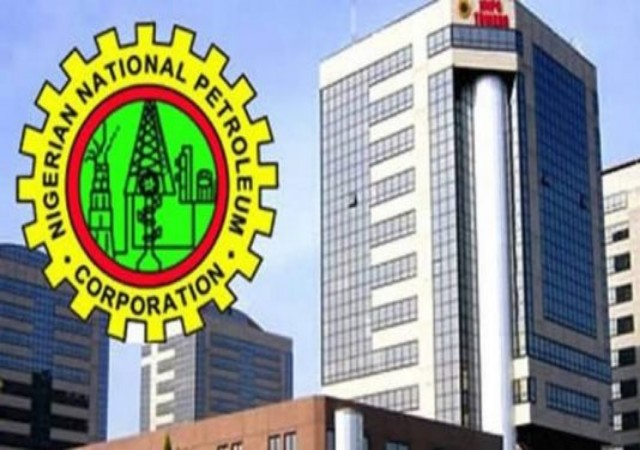A group, known as The People’s Alternative Political Movement (TPAP-M) some days ago threatened to drag the Nigeria National Petroleum Corporation to court over “$3.2billion unapproved loan” to Dangote Refinery
A loan is a form of debt incurred by an individual or other entity. The lender – usually a corporation, financial institution, or government – advances a sum of money to the borrower. In return, the borrower agrees to a certain set of terms including any finance charges, interest, repayment date, and other conditions.
Equity represents the value that would be returned to a company’s shareholders if all of the assets were liquidated and all of the company’s debts were paid off. The calculation of equity is a company’s total assets minus its total liabilities.
From the definition of Loan and Equity above, it shows that The People’s Alternative Political Movement (TPAP-M) did not understand that the Nigerian National Petroleum Corporation is not taking or granting loan to the Dangote Refinery but taking equity; which is a share (a share is a percentage of ownership in a company or a financial asset) of the private refinery.
It will be recalled that the Group Managing Director (GMD) of the Nigerian National Petroleum Corporation (NNPC), Mele Kyari in his explanation said that the NNPC 20% equity in the Dangote refinery was driven by the profit potential of the refinery business and the need to have a say in a business of this magnitude, which borders on energy security for Nigeria and Africa, with huge implications for fiscal security of the country.

Concerning the NNPC 20% equity, Mallam Kyari has said that NNPC is not using government money to buy stakes in the 650,000 barrels per day Dangote Refinery, which is expected to start production in 2022.
He said rather, they are borrowing money from banks on the back of viability, workability and cash flow of the business in addition to guaranteed dividends.
Kyari said, “Dangote refinery will come into production by 2022. And what that will do is to deliver over 50 million litres of gasoline into, to be specific, our markets. We are also working on our refineries, to ensure that we fix them. We have awarded the contract for Port Harcourt refinery rehabilitation. And ultimately we are going to close that of Warri and Kaduna very soon in July so that all of them will work contemporaneously.
“The net effect is that you are going to have an environment where Nigeria becomes the hub of petroleum products and supplies. It’s going to change the dynamics of petroleum supply globally in the sense that the flow is coming from Europe today and it is going to be reversed to some other direction. We will be the supplier for West Africa legitimately and also many other parts of the world.
“So the meaning of this is, there is an opportunity that has been thrown at us. And I’m not sure Mr Dangote wants to sell his equity in the refinery. I can confirm that it was at our instance that we started this engagement. He did not want to sell his shares in this refinery.
“There is no resource-dependent country that will watch a business of this scale, which has bordered on energy security and has implications for fiscal security of the country, and you don’t have a say. And for us, as a strategy, we started this process long before Dangote started his refinery project.
“We take equity in very significant businesses that are anchored on the oil and gas operations: fertiliser, methanol plants, modular refineries and some other businesses that we are dealing with.
“For the Dangote refinery, we are not taking government money to buy it, which is the mistake that people are making. We are borrowing on the back of the cash flow of this business. We know that this business is viable, it will work and it will return dividends.
“It has a cash flow that is sustainable because refinery business, in the short term, will continue to be sustainable. That’s why banks have come forward to lend to us, so we can take equity in this.
“It is to expand our portfolio and also because we are the national oil company, we have the responsibility to guarantee energy security for our country. And there is no way you can have a say, except you have a seat on the board of these institutions. And that’s why anyone that is going to construct a refinery that is in the excess of 50,000 barrels per day, we will talk to them, take equity in it, as long as we have the money to pay for it.’’
From all indications, the Nigeria National Petroleum Corporation has not violated any relevant provisions of the Constitution as the NNPC is not taking a loan from financial institutions to fund the enterprise owned by a private corporate body or individual but rather taking 20% equity.
On the allegations that the NNPC did not seek the approval of the Federal Executive Council, the GMD of the Corporations said, “The reality today is that we have a valuation of this refinery. I am not sure, but it’s about $19 billion. I do not have an exact figure. We haven’t closed on this, there’s an ongoing engagement. There’s governance around this that we need to conclude and that includes seeking the authority of the Federal Executive Council.”
From the explanation by the Group Managing Director of the Nigerian National Petroleum Corporation, Mal Mele Kyari, the Corporation is expanding its portfolio and also guarantying the energy security for the country. This must be commended by all Nigerians who are the owner of the Nigerian National Petroleum Corporation,

